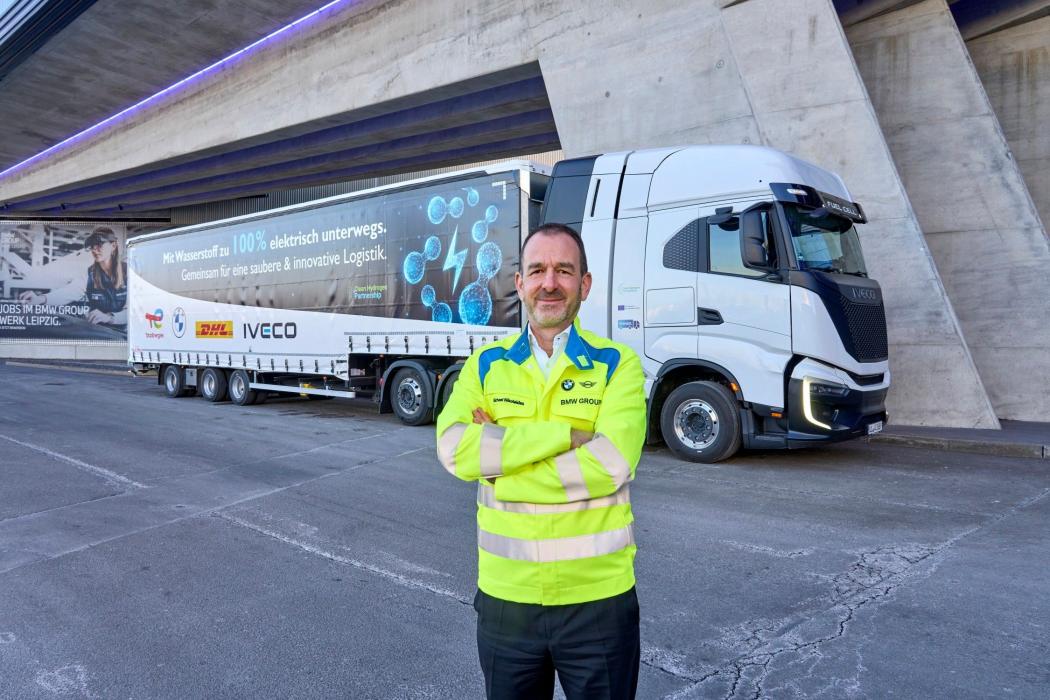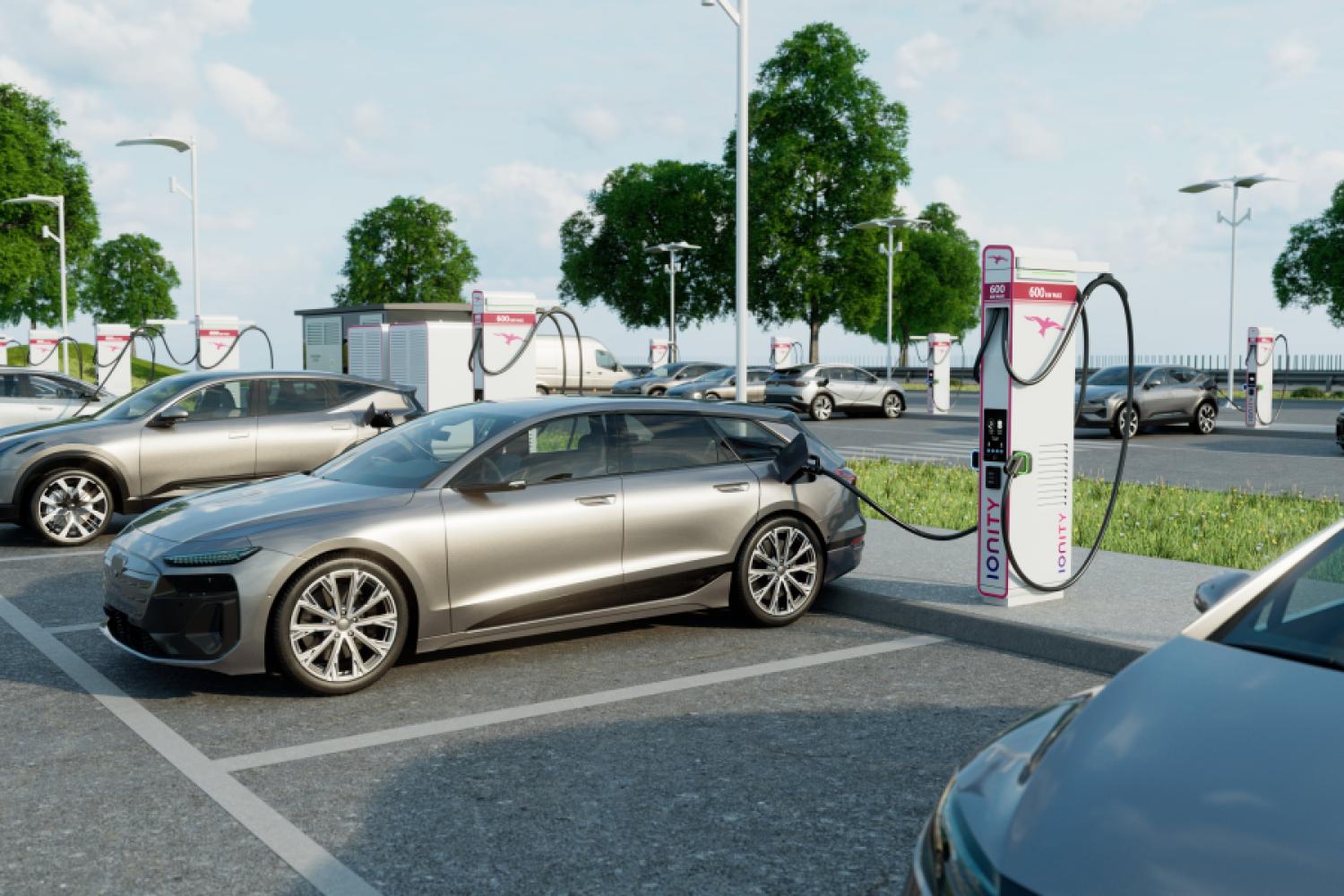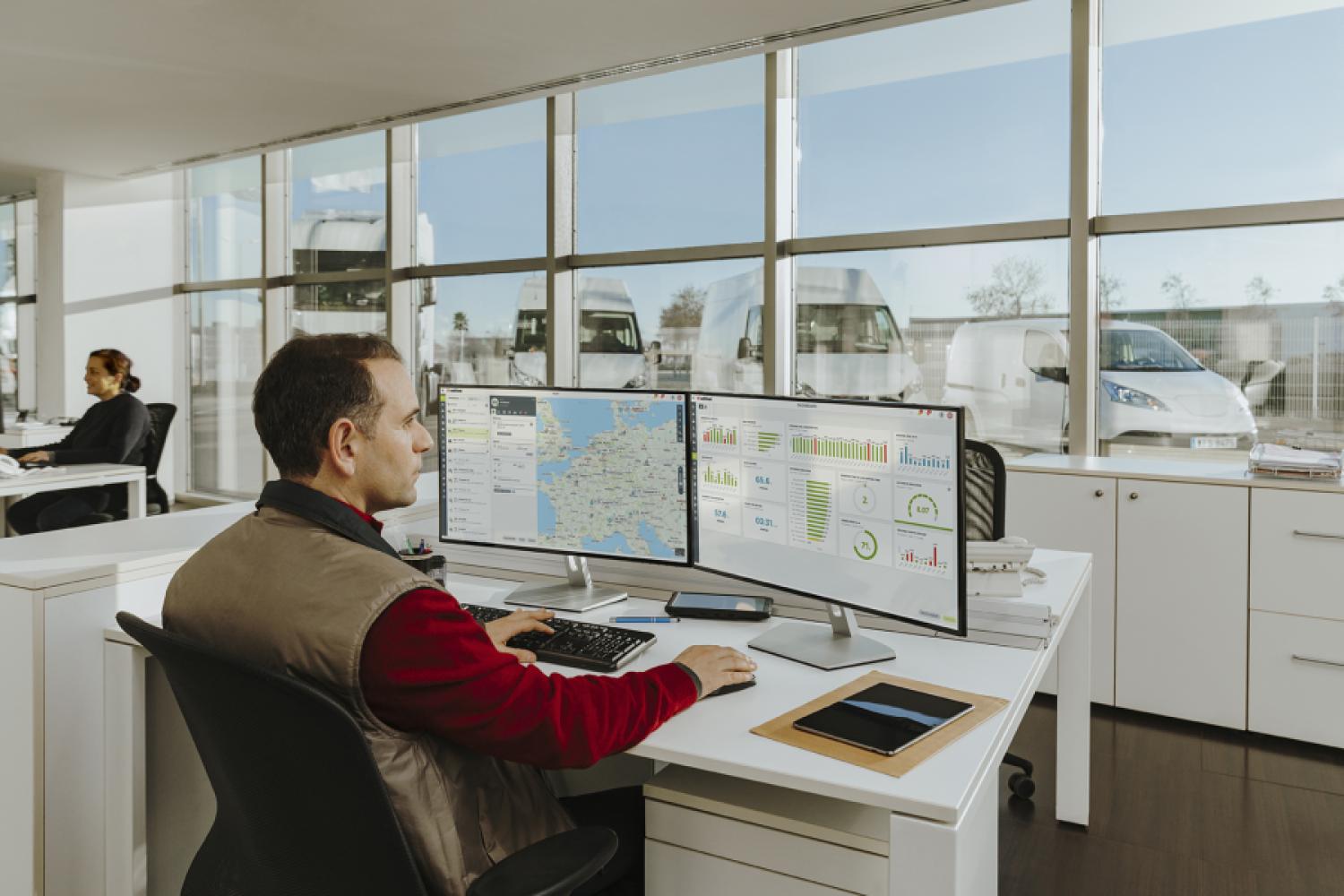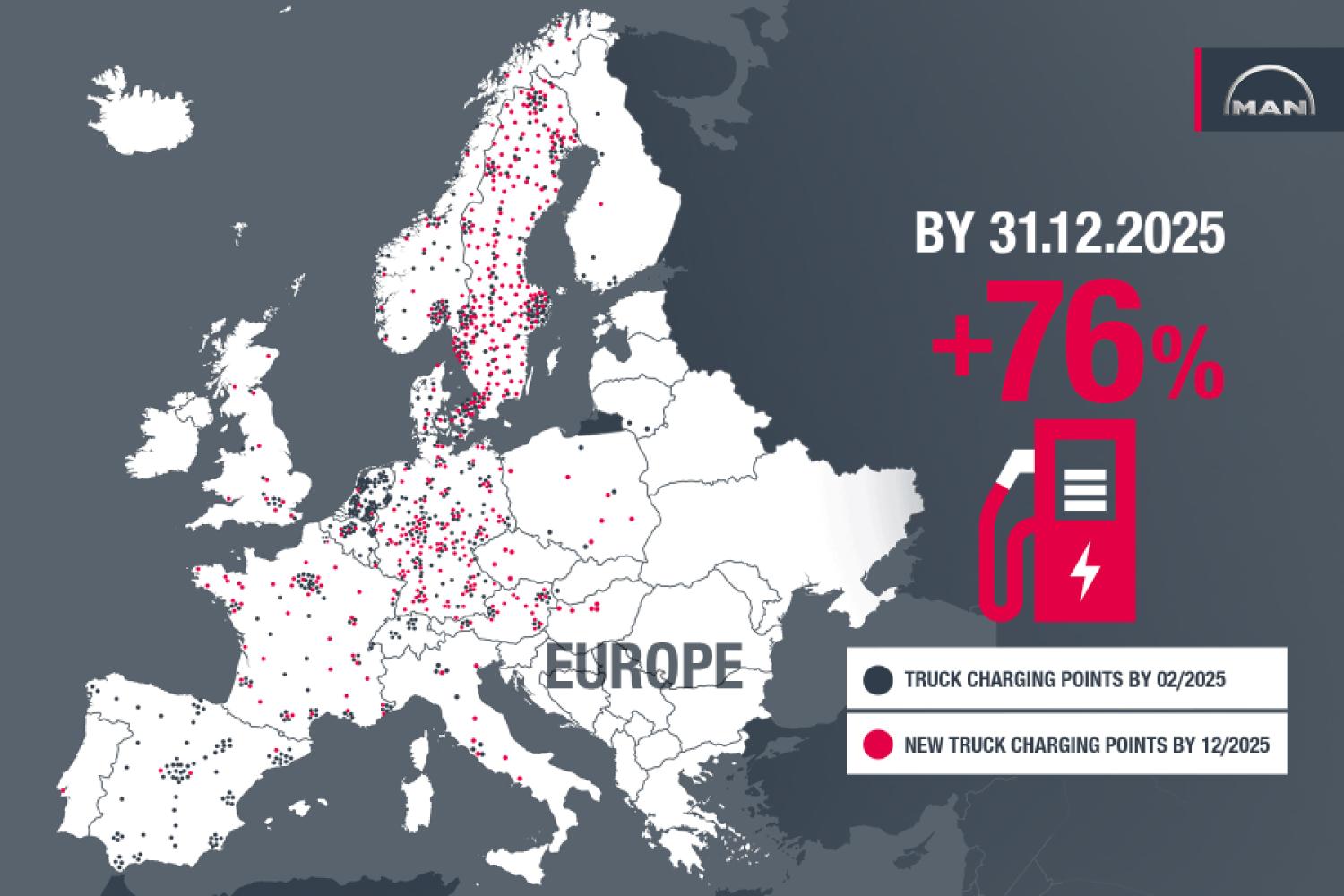The BMW Group is launching a pilot operation with the acquisition of two emission-free fuel cell trucks as part of the European H2Haul project to promote hydrogen mobility in freight transport. This was reported in a press release on February 20. The two vehicles will be used in real operation between Leipzig, Landsberg, and Nuremberg to test the practicality of this technology. To enable series operation, two state-of-the-art hydrogen refueling stations are to be built in Leipzig and Hormersdorf. According to the press release, they allow for the quick refueling of large amounts of hydrogen, which is crucial for the continuous use of fuel cell trucks in logistics transport. The BMW Group is implementing the H2HAUL project in collaboration with Iveco, DHL, and TEAL Mobility.
“For the first time, hydrogen-powered trucks are being used in series production for the German automotive industry. We have been working with our partners for several years to implement the pilot fleet. This project is an important milestone to gain experience in series operations and to further advance this important technology,” says Michael Nikolaides, Head of Production Network and Logistics at BMW Group.
Commercializing fuel cell trucks in Europe
The H2Haul project aims to test hydrogen trucks with fuel cell drives in practical settings and examine the significant contribution they can make to the decarbonization of heavy-duty transport. By testing this technology, the path for the commercialization of fuel cell trucks in Europe is to be paved. Supported by the Clean Hydrogen Partnership, a total of 16 trucks are being used in various European countries, including two "IVECO S-eWay Fuel Cell" trucks in Germany in BMW Group Logistics. Insights gained from the practical operations at BMW Group are intended to help bring the technology closer to market readiness and pave the way for a broad introduction in road freight transport. According to BMW, with short refueling times and longer ranges, hydrogen trucks can serve as an important complement to electric trucks in long-haul operations, which are already in use at BMW Group. Moreover, the flexible use of H2 trucks in logistics should be highlighted, regardless of the location of charging infrastructure or network expansion, it says.
Participation in the H2Haul project with the practical use of hydrogen fuel cell trucks in long-distance and heavy-duty transport, according to the press release, is part of the BMW Group Strategy for Reduced Logistics Emissions and an important step towards achieving the climate goals set by BMW Group on the way to emission-free transport logistics. The cross-departmental “Reduced Logistics Emissions” team develops concepts for CO2 reduction for worldwide BMW Group transports across all modes of transport such as road, rail, and ship. With the goal of keeping transport in the global production and distribution network emissions-neutral, the team evaluates drive technologies taking into account various future scenarios. Positive evaluations lead, according to the automaker, to the realization of pilot projects and the development of plant concepts, whose emissions data are subsequently consolidated to enable CO2 reporting.
Additional Deployment of H2 Combustion Engine Trucks
In addition to participation in the H2Haul project, the research project “HyCET” for the testing of trucks with H2 combustion engines was also initiated under the consortium leadership of the BMW Group. According to the press release, as part of the HyCET project, two 40-ton trucks and one 18-ton truck will be used in the BMW Group Logistics in the future. The project is funded by the Federal Ministry of Digital and Transport (BMDV). Project partners include DHL, Volvo Trucks, Deutz, KEYOU, and TotalEnergies. By simultaneously testing H2 fuel cells and H2 combustion engines, the BMW Group aims to consistently pursue the approach of technology openness in transport logistics. Compared to the fuel cell, the combustion engine has a higher consumption but can boast lower production costs due to its similarity to the established diesel engine.
Due to the particularly low emissions generated by the combustion of hydrogen, H2 combustion engines are also considered Zero-Emission Vehicles according to EU regulations. Both H2 fuel cell trucks and trucks with H2 combustion engines will be deployed on the same routes in BMW Group Logistics and will use the same refueling stations. In comparing the two propulsion technologies, BMW aims to identify the best possible use area for each technology in BMW Group Logistics, according to BMW.






